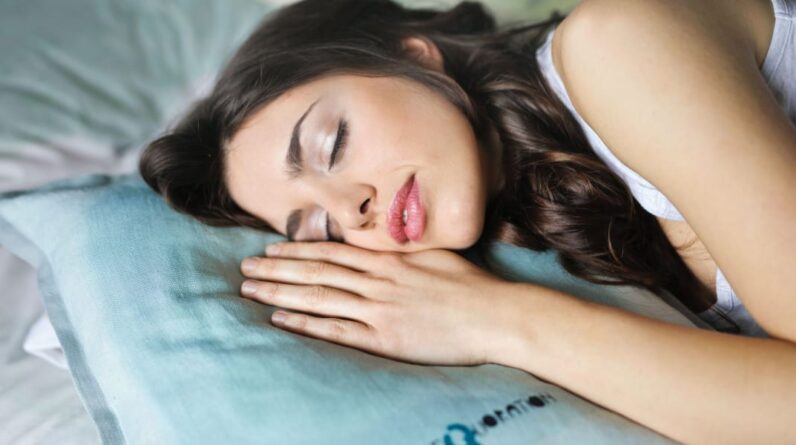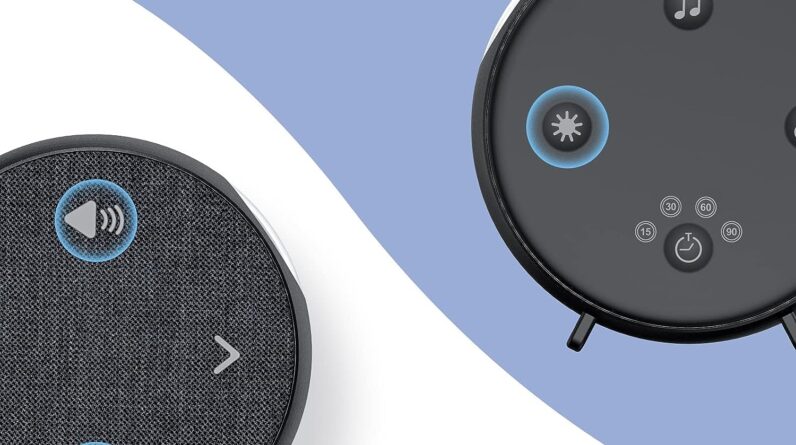
Do you ever find yourself lying in bed, unable to fall asleep because your mind is racing with worry and anxiety? It’s a common problem that many people face, and it can have a significant impact on both your mental and physical well-being. In fact, anxiety and sleep problems often go hand in hand, creating a negative cycle that can be difficult to break. In this article, we’ll explore the relationship between sleep hygiene and anxiety and learn more about how insufficient sleep can worsen anxiety disorders. But don’t worry, we’ll also discuss some strategies and tips for improving your sleep and managing anxiety, so you can get the restful sleep you deserve.
Anxiety disorders are the most common mental health problem in the United States, affecting millions of adults and teenagers each year. These disorders are characterized by excessive worry and unease, and they can have a significant impact on both your emotional and physical well-being. Some of the most common types of anxiety disorders include generalized anxiety disorder, panic disorder, social anxiety disorder, specific phobias, obsessive-compulsive disorder, and post-traumatic stress disorder. While the exact cause of anxiety is still unknown, it is believed to be a combination of genetics, family history, and exposure to negative life events. One thing that researchers do know, however, is that sleep disturbances such as insomnia are common among individuals with anxiety disorders. In fact, people with anxiety are more likely to have difficulty falling asleep and staying asleep when faced with stress. This can lead to a vicious cycle, as sleep deprivation can both instigate and worsen anxiety disorders. So, improving your sleep hygiene can be an essential part of managing anxiety and taking care of your mental health. In the rest of this article, we’ll explore some strategies and tips for improving sleep and reducing anxiety, so you can wake up feeling refreshed and ready to face the day.

Table of Contents
Understanding Anxiety
Anxiety is a common mental health issue that affects many individuals. It is often associated with sleeping problems, making it difficult to fall asleep and stay asleep. Insufficient sleep can worsen anxiety, creating a negative cycle of insomnia and anxiety disorders. In the United States, anxiety disorders are the most common mental health problem.
There are several different types of anxiety disorders, including generalized anxiety disorder, panic disorder, social anxiety disorder, specific phobias, obsessive-compulsive disorder, and post-traumatic stress disorder. Each of these disorders is characterized by excessive worry and unease, with symptoms that can affect both emotional and physical well-being.
According to research, anxiety disorders affect around 20% of American adults and 25% of teenagers each year. The exact cause of anxiety is unknown, but it is believed to involve a combination of genetic factors, family history, and exposure to negative life events.
The Relationship Between Sleep and Anxiety
Sleep and anxiety have a complex relationship. Anxiety can have a significant impact on sleep, making it difficult to fall asleep and stay asleep. People with anxiety disorders often report experiencing racing thoughts and feelings of restlessness when trying to sleep. These symptoms can lead to insomnia, which is characterized by difficulty falling asleep, staying asleep, or waking up too early in the morning.
Conversely, sleep also affects anxiety. Sufficient and quality sleep is essential for maintaining optimal mental health and well-being. When sleep is disrupted or inadequate, it can contribute to increased anxiety levels. This creates a dangerous cycle in which anxiety leads to sleep disturbances, and sleep disturbances worsen anxiety.
Insomnia is a common symptom of anxiety disorders, and it can further exacerbate anxiety symptoms. People with anxiety disorders are more likely to have sleeping problems when facing stress or experiencing heightened anxiety levels. This can result in increased fatigue, irritability, and difficulty functioning throughout the day.
Sleep Hygiene and Anxiety
Sleep hygiene refers to the habits and practices that promote good sleep quality and quantity. It plays a crucial role in managing anxiety. By implementing good sleep hygiene practices, you can improve the quantity and quality of your sleep, which can in turn help alleviate anxiety symptoms.
Some tips for improving sleep hygiene include:
- Establish a regular sleep schedule: Try to go to bed and wake up at the same time every day, even on weekends. This helps regulate your body’s internal clock and promote more consistent sleep.
- Create a relaxing bedtime routine: Engage in calming activities before bed, such as reading a book, taking a warm bath, or practicing relaxation techniques like deep breathing or meditation. Avoid stimulating activities or electronics close to bedtime.
- Create a sleep-friendly environment: Make sure your bedroom is dark, quiet, and at a comfortable temperature. Invest in a good-quality mattress and pillows that support good sleep posture.
- Limit exposure to stimulating substances: Avoid caffeine, nicotine, and alcohol, particularly close to bedtime. These substances can interfere with sleep quality and make it more difficult to fall asleep.
- Get regular exercise: Engaging in physical activity during the day can help promote better sleep at night. However, avoid exercising too close to bedtime, as it can energize your body and make it more difficult to fall asleep.
By incorporating these sleep hygiene practices into your daily routine, you can create a better sleep environment and improve your overall well-being, including managing anxiety.
Managing Anxiety Disorders with Sleep
In addition to implementing good sleep hygiene practices, there are other strategies and treatments available for managing anxiety disorders and improving sleep.
One effective strategy is cognitive-behavioral therapy for insomnia (CBT-I). CBT-I is a type of therapy that focuses on identifying and changing negative thoughts, beliefs, and behaviors regarding sleep. It helps individuals develop healthier sleep habits and improve sleep quality, which can in turn reduce anxiety symptoms.
Medications may also be prescribed to manage anxiety disorders and sleep problems. There are various types of medications that can be used, including benzodiazepines, selective serotonin reuptake inhibitors (SSRIs), and sedative-hypnotics. It is important to work closely with a healthcare provider to find the most appropriate medication and dosage for your specific needs.

Effects of Anxiety on REM Sleep
REM sleep, or rapid eye movement sleep, is a crucial stage of the sleep cycle that is associated with dreaming and memory consolidation. Anxiety can have a significant impact on REM sleep, leading to disruptions and disturbances in this important sleep stage.
Individuals with anxiety disorders often report more disturbing dreams and nightmares. This can be attributed to heightened emotional arousal during REM sleep, which can intensify anxiety-related thoughts and emotions. As a result, people with anxiety disorders may experience more frequent awakenings during REM sleep and have difficulty returning to sleep.
Disruptions in REM sleep due to anxiety can further worsen anxiety symptoms and contribute to sleep disturbances. It is important to address anxiety to improve overall sleep quality and promote optimal emotional well-being.
Sleep Deprivation and Anxiety Disorders
Sleep deprivation can both be triggered by and worsen anxiety disorders. When individuals do not get enough sleep, it can negatively impact their mental health and contribute to the development or exacerbation of anxiety symptoms.
Lack of sleep affects the brain’s ability to regulate emotions, creating a heightened response to stress and anxiety. Sleep deprivation can lead to increased irritability, difficulty concentrating, and a decreased ability to cope with daily stressors.
The impact goes beyond short-term effects. Chronic sleep deprivation can contribute to the development of anxiety disorders. It creates a cycle where anxiety disrupts sleep, and lack of sleep worsens anxiety symptoms, creating a vicious cycle that is difficult to break.

Self-Care Practices for Managing Anxiety and Improving Sleep
Aside from sleep hygiene practices, several self-care strategies can help manage anxiety and improve sleep:
- Relaxation techniques and mindfulness: Engaging in relaxation techniques, such as deep breathing exercises, progressive muscle relaxation, or guided imagery, can help calm the mind and reduce anxiety. Mindfulness practices, such as meditation or yoga, can also promote relaxation and improve sleep quality.
- Regular exercise: Physical activity has been shown to reduce anxiety symptoms and promote better sleep. Engage in regular exercise, such as walking, jogging, or swimming, to help manage anxiety and improve sleep.
- Establishing a bedtime routine: Create a consistent routine before bed that allows your mind and body to wind down. This can include activities such as reading, listening to calming music, or taking a warm bath.
By implementing these self-care practices into your daily routine, you can better manage anxiety symptoms and improve your sleep quality.
Seeking Professional Help
While self-care practices and strategies can be helpful, it is essential to seek professional help when necessary. If anxiety and sleep problems persist and significantly affect your daily life, it may be time to consider therapy for anxiety disorders and sleep issues.
There are various types of therapy that can be effective in treating anxiety disorders, including cognitive-behavioral therapy (CBT), exposure therapy, and mindfulness-based therapies. A therapist can help you identify and address the underlying causes of your anxiety and develop coping mechanisms to manage symptoms.
It is important to reach out for support and not hesitate to seek professional help when needed. Mental health professionals have the expertise to provide the necessary guidance and support to help manage anxiety and improve sleep.
Alternative and Complementary Approaches
In addition to conventional treatments, some individuals may explore alternative or complementary approaches for managing anxiety and sleep problems. These approaches can supplement traditional therapies but should be used under the guidance and supervision of a healthcare professional.
Natural remedies, such as herbal supplements like valerian root or lavender, may promote relaxation and improve sleep quality. However, it is important to consult with a healthcare provider before starting any herbal remedies to ensure their safety and compatibility with other medications.
Several holistic treatments, including acupuncture, massage therapy, and aromatherapy, have been used to alleviate anxiety symptoms and improve sleep quality. These approaches may help promote relaxation and reduce anxiety but should be used in conjunction with other evidence-based treatments.
Conclusion
Sleep hygiene plays a vital role in managing anxiety disorders and improving overall well-being. The complex relationship between sleep and anxiety highlights the importance of prioritizing good sleep habits. By implementing good sleep hygiene practices, seeking professional help when needed, and incorporating self-care practices into our daily routine, we can better manage anxiety symptoms and improve our sleep quality.
Recognizing the importance of sleep hygiene for managing anxiety and taking steps to prioritize sleep can have a positive impact on our overall mental health and well-being. Remember to reach out for support when needed and explore alternative or complementary approaches under the guidance of a healthcare professional. By taking these steps, you can improve your sleep and alleviate anxiety, leading to a healthier and more fulfilling life.





